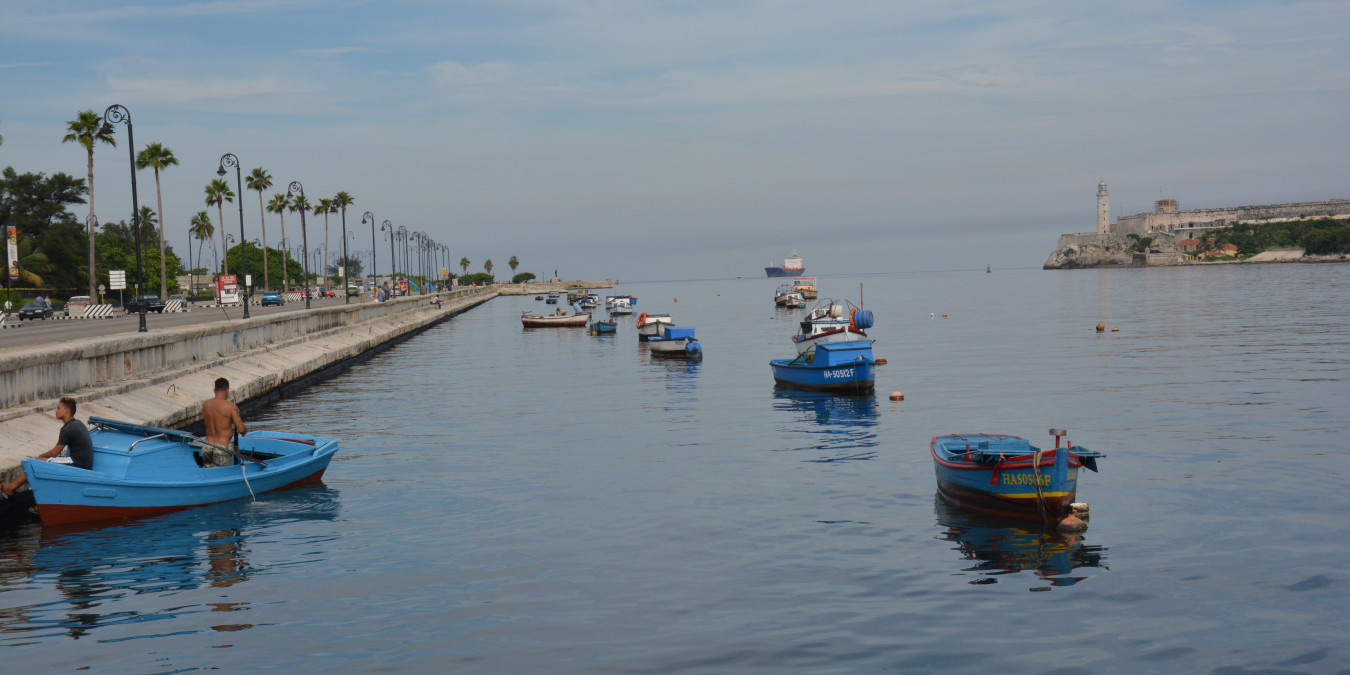At 3:20 in the morning on July 13th in 1994 near the mouth of Havana Bay, an old tugboat named 13 de Marzo, made of wood carrying more than 70 people, sank. On board there were 11 children between the ages of 6 months to 11 years, 11 women, and the rest were men.

This group of Cubans wanted to make it to the coast of Florida, but this wish… or this dream, was violently interrupted by three other tugboats- modern for the time- with open lethal intentions. They rammed the older boat until it was destroyed and sent to the bottom of the sea. 32 people died, including all the children.
What the survivors told of, after finding themselves on safe land, was surely something dantesque. Despite the shouts of horror and pleas for their lives, the aggressors never stopped their homicidal attack for a moment.
A strong jet of water swept a small baby from the arms of a young mother, and the aggression never stopped, even though they knew there were children on board. Once 13 de Marzo had sunk, the other tugboats turned around towards the wreck to create waves that would also send the survivors to the bottom of the sea. All of this showed that the intention was to leave no survivors, but the proximity of the fishing boat, as it was known, thwarted that purpose.
After 29 years since that barbaric attack, no one was brought before the courts, nor was anyone held directly responsible, much less those who were intellectually responsible.
After a few years since the death of all those innocents, Fidel Castro assured that what had happened was an accident, and later the official media cataloged the travesty undergone by the 13 de Marzo as an “armed kidnapping”.
It goes without saying that the head of state does not have the legal power, with a political decision, to seal a case that obligatorily and morally, has to go to the courts, i.e, to those in charge of dispensing justice.
Some time after these statements, in August of 2005, three Cuban citizens, Moisés Leonardo Rodríguez, Wilfredo Vallín Almeida and the one who is recounting this, presented a written accusation before the Attorney General at that time, Dr Juan Esalona Reguera, that states in some parts:
“As simple Cuban citizens, the signers below write to you because there are no legal institutions of constitutional protection, public defense, or anything similar, and the Attorney General’s Office is the guarantor of the legal order with the binding power to restore any broken legality. This being so, the Attorney General is the person of highest rank within the judicial system of the country for such purposes and therefore, this letter is addressed to you.
(...) on the day of July 13th 1994, the tugboat 13 de Marzo was sunk at the exit of Havana Bay. The word “piracy” was not heard at any point at that time. However now, when the subject is officially discussed again, the reason these people went to sea is completely omitted, there is no mention of filial love, nor of morning and eternal pain, nor of the right to bring flowers to the victims, but it is said, for the first time, that it was an act of piracy!
But here, you and everyone who is a lawyer knows how to distinguish between the figures of “intentional homicide” and “culpable homicide” and that in both cases a trial and punishment should be imposed.
Things are as they are, we are asking you to accept all these above considerations as facts, we turn to the Prosecutor’s Office, the highest representative of socialist legality, to charge with murder, given the qualifying circumstances of premeditation, overkill, and malice are present, all those from that morning of the 13th of July 1994 who were on board the tugboats Polargo 5, Polargo 2, and Polargo 3 that participated one way or another in the sinking of 13 de Marzo. If it results that the sinking was the result of an accident, we ask that they be tried for intentional homicide in accordance with the criminal laws that are enforced.”
A response to this accusation was never received, which is the highest proof of the complicity of the state in this act of mass murder. But even more was the unquestionable fact that any official intention to recover the remains of all those innocents lost at the bottom of the sea had never existed. Almost three decades after this mass murder, those responsible continue to be held unaccountable, obviously protected by the highest political authorities in the country.



